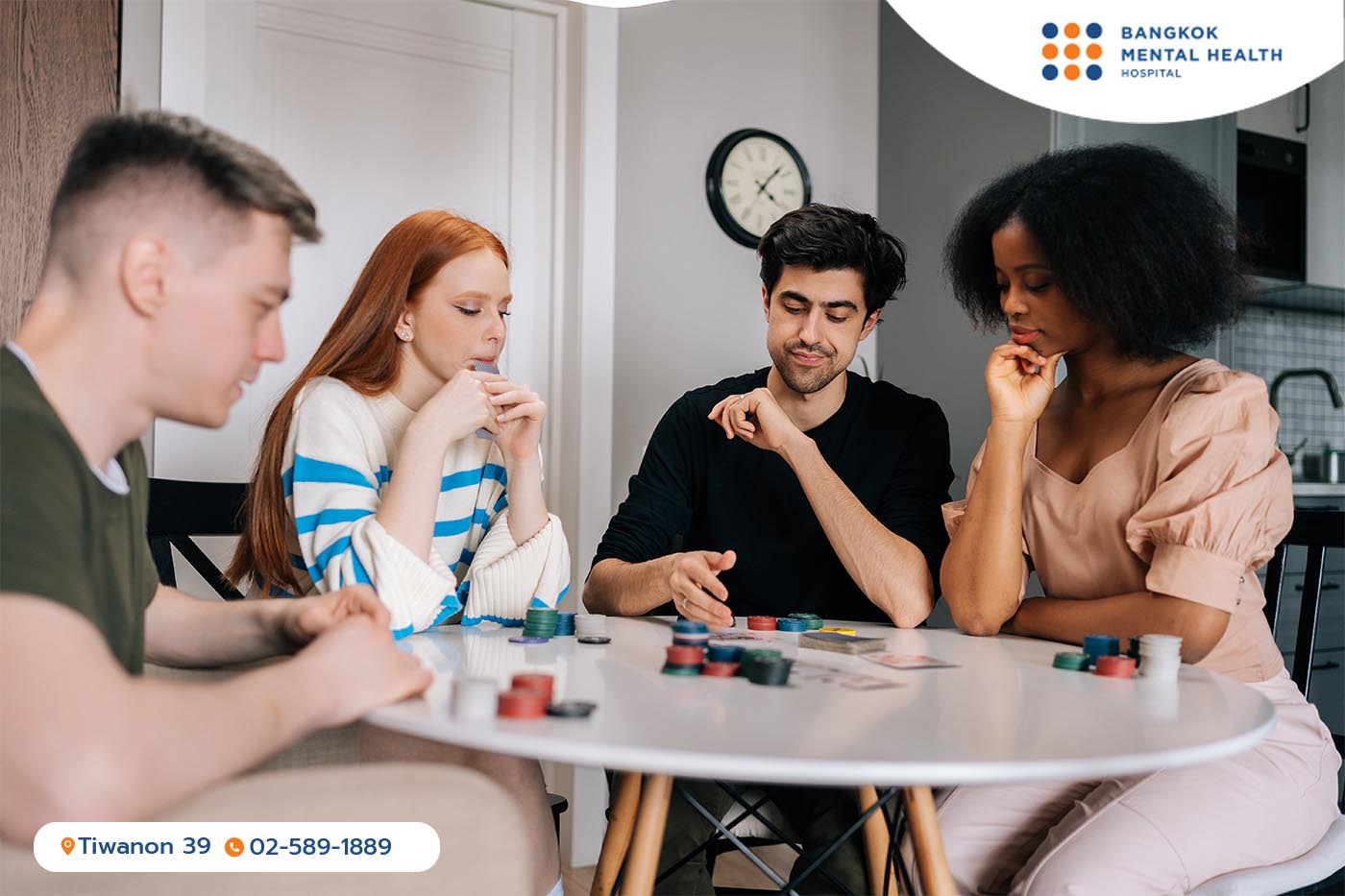
Gambling can be compared to a life trap that ensnares some individuals, potentially leading to utter devastation in various aspects of life, such as family relationships, work, and financial stability. There are a few signs indicating that gambling may be problematic, including:
- The inability to control your gambling.
- Restlessness or irritability when trying to stop or reduce gambling.
- The overwhelming desire to win back losses.
- Borrowing money from others to cover gambling debts.
If you notice any of these signs, it is advisable to consult with a psychiatrist for discussion or treatment.
For the treatment of gambling addiction, three approaches are commonly used
- Medication: While there are no specific medications for gambling addiction, certain medications such as anti-anxiety or antidepressant medications can help address underlying factors contributing to gambling.
- Psychotherapy: Cognitive Behavioral Therapy (CBT) can help to modify thinking pattern and behavior, and Motivational Interviewing can help to promote the motivation to stop gambling.
- Group therapy: This involves bringing together individuals facing gambling issues to share experiences, explore various strategies to quit gambling, and provide mutual support, making quitting more effective.
The success of treatment requires collaboration between the patient and their family. Family members can offer support in reducing or quitting gambling, and it is crucial to avoid blaming or shaming the affected person. Engaging in joint activities, such as exercise, dining, or shopping, can also play a pivotal role in promoting recovery.
Related Articles

What is the Stigma About Mental Health?
The World Health Organization (WHO) has estimated that one in four of the world’s population will experience mental illness at some point in their lives. However, a persistent stigma exists around the subject of mental illness, and it can be a deterrent to people seeking out the professional help they need. How Can a Stigma Affect Your Health? […]

6 Ways You Can Help Someone Cope with Adjustment Disorder
Adjustment disorder is a mental health condition that occurs when someone struggles emotionally or behaviorally after experiencing a stressful event. It can happen to anyone and often leads to feelings of sadness, anxiety, or an inability to cope with daily responsibilities. Life changes such as job loss, divorce, moving to a new place, or losing […]

The DSM-5 Criteria of Adjustment Disorders
Adjustment disorder is a response to a significant stressor or life change that causes emotional or behavioral symptoms that impact daily functioning Understanding Adjustment Disorder Adjustment disorder is an inability to adjust to or cope with a particular stressor. This disorder can affect anyone, regardless of age or gender, and can result from a variety of […]
Talk to Doctor
Call Us
Line BMHH